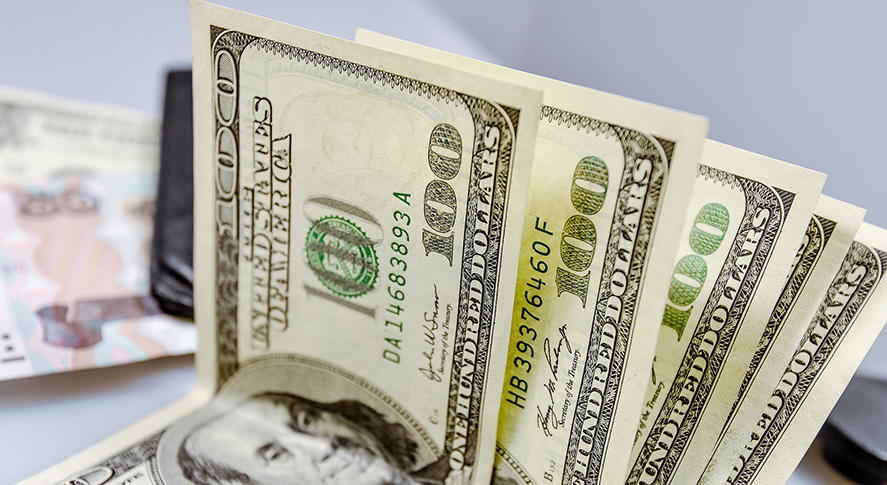How did the most common phrases about money come about?

Currently, there are various statements that, in one way or another, relate to money. Each of us has heard the phrase “money doesn’t smell” or “chasing a long ruble”, but do you know how these expressions came about? We will tell you the story of how smart phrases about money came about.
In the 13th century, on the territory of Ancient Russia, the hryvnia was used as the main monetary equivalent. Since the people of that time did not have kopecks, the hryvnia had to be cut into several parts. Analogs of modern coins were called rubles. We divided the hryvnia without measuring it, literally by eye. The largest part, which was formed as a result of the division of the hryvnia, was called the long ruble. It was during this period that the quote “chasing the long ruble” appeared. It is worth noting that the name of the currency “hryvnia” came from a decoration made of silver or gold, which was worn on the neck or nape of the neck.
In the 16th century, printed publications with news were published in Italy. Often their value was equal to one small coin, which was called a newspaper. As a result, this name was transferred to printed products.
In the Gospel, you can find a parable, according to which a poor woman gave her last 2 coins for the construction of the temple. At that time, the coin was called a mite. So she made a contribution. Thanks to this parable, modern people have the saying “do your bit”.

Expressions about money have different roots. For example, ancient people assumed that the human soul is located in the area of the collarbone and neck. The local population tied bags of coins to their necks in fear of losing the money. It was in this place, in their opinion, that the soul was located. If there was nothing in the purse, it was said that “not a penny to my soul”.
On the metal money that was minted in Ancient Russia, an image of a horseman with a saber was applied. As a result of the financial reform, the image was replaced with the image of a prince with a spear. They were popularly called kopecks. It was later officially approved.
Have you ever heard such a saying about money as “the game is not worth the candle”? Previously, this phrase could only be heard from card players. Gamblers under this phrase meant a small win, which could not cover even the cost of candles. To play cards, people had to light candles, which literally melted during the game.
In ancient Rome, the ruler introduced a tax on toilets for public use, some residents began to resent this innovation and reproach the emperor for the wrong way to receive money in this way. Then the ruler gave an order to bring the money received and asked the question, do they have a smell? The subjects replied in the negative. That’s how the quote “Money doesn’t smell”came out.

The largest monetary equivalent in Babylon, ancient Greece, and Persia was talent. If you have read the parable of a man who received money but was afraid to use it, you know that he decided to bury it in a secret place. Now the quote “buried talent in the ground” has a completely different meaning. A similar statement applies to people who do not develop their abilities given to them from birth.
Quotes about money appeared in different parts of the world. For example, in Ancient Rome, people prayed to the goddess Juno. According to the translation from Latin, her name means “giving advice”. In Roman, her name sounded like ” Coin.” It is worth noting that next to the temple there was a workshop where money was made from metal with the image of Juno. They were called coins. Translated from English, money means money. This term means paper and metal equivalents.
The famous mobster Al Capone played an important role in the formation of the expression “Launder money”. This powerful man couldn’t officially spend his money, and buying shares was out of the question. At that time, he decided to create a whole network of the cheapest laundries in America. There were a lot of consumers of services, so the state authorities could not trace the real income. The mobster inflated the real profit and thereby laundered money obtained in an illegal way. Al Capone’s statement is firmly embedded in the life of a modern person. Each of us understands what money laundering means. Do you often use the expression Al Capone?
Did you know that the word “screw up” has roots in the world of finance? In Russia, this word meant the minting of counterfeit coins, and the manufacturers were called portachs.

We bring to your attention quotes from famous people about handling money:
- The standard of living is an attempt to afford something that you won’t have in ten years.— Danny Kaye
- When you make a lot of money, you need to take austerity measures.When you’re in the red, it’s too late.— Jean Paul Getty
- If you want to succeed, you should only spend half of your income.If you want to get rich, then only a third.— Sir Francis Bacon
- People don’t realize how big a source of income thrift is.- Marcus Tullius Cicero (AD 106-43)B.C.)
- A miser can do nothing more useful or better than die.— Martin Luther
- We buy things we don’t need with money we don’t have, to impress people we don’t like.- Tyler Durden
- You have to throw the money out the window so it can go back to the front door.— Karl Lagerfeld
- Making money requires wisdom.Keeping money requires a certain amount of wisdom, and being able to spend money well is an art form.— Berthold Auerbach
- It’s better to think about money one day a month than to work for it for a whole month.— John Davison Rockefeller
- The only thing that can do without money is debt.— Heinz Schenk
- You don’t get rich from what you earn, but from what you don’t spend.— Henry Ford
- If you can’t pay with money, at least show gratitude.- Folk Wisdom.














Leave a Reply